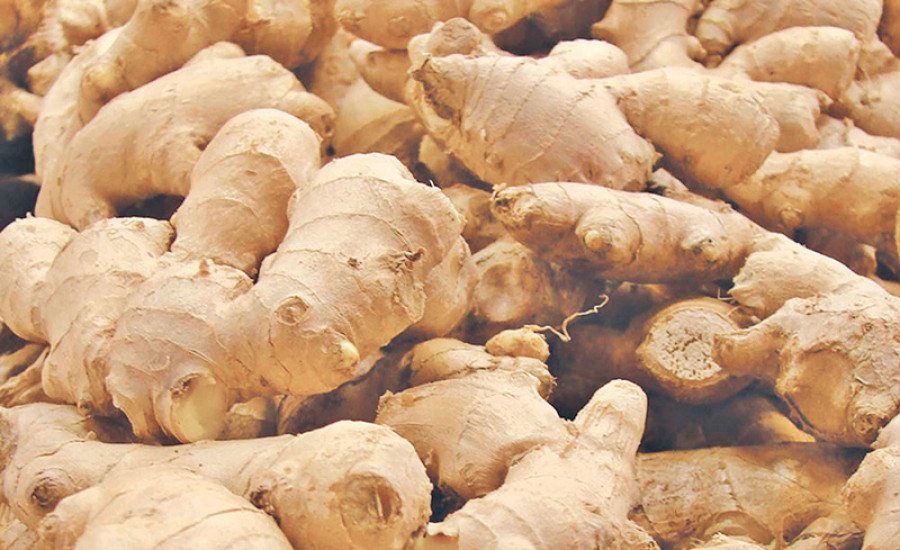Money
Ginger farmers stand to lose Rs500m
Nepali ginger farmers stand to lose as much as Rs500 million this year, as Indian authorities have once again prevented the entry of the high-value spice to their country.
Pradip Menyangbo
Nepali ginger farmers stand to lose as much as Rs500 million this year, as Indian authorities have once again prevented the entry of the high-value spice to their country.
This is not the first time India, which absorbs over 99 percent of ginger produced in Nepal, has created import barrier for Nepali spice. Yet Nepal has failed to diversify overseas market for its produce.
Currently, more than 500 tonnes of ginger are stranded at the Agricultural Produce Market in Dharan, largely due to export hurdles created by India. Traders said that ginger export to India came to a halt three weeks ago and there is no sign of the trade resuming anytime soon.
A year ago, Indian authority had stopped importing Nepali ginger stating Nepali consignment contained Chinese ginger as well. This year, ginger export has come to a halt due to “quality issue”.
Traders said that Indian authorities are arguing that Nepal’s ginger is laced with soil. This, according to experts, may be the result of storing the high-value spice in fields due to lack of proper storage facility.
But ginger trader Ram Prasad Rai refuted allegations that Nepali ginger contains a lot of soil and pesticide. “Ginger is cleaned in Naksalbari, India,” he said.
Indian customs officials “always create hassles whenever there is surplus production of ginger in India”, Laxman Bhattarai, manager of the Agricultural Produce Market in Dharan, said.
The government has encouraged farmers of Dharan to produce ginger commercially and has declared Dharan as the Ginger Production Zone.
Yet barriers created by India are forcing them to rethink. They are also disappointed with the government as their five-year-old demand to find an alternative export market to India has not been fulfilled so far.
According to the Agricultural Produce Market, ginger production in the eastern region jumped to 9,567 tonnes in 2016-17 from 6,873 tonnes in 2015-16. This year, traders are expecting a record high production of 12,000 tonnes. But farmers are not upbeat, as they have started fearing a lot of them will rot due to export barriers created by India.
If farmers fail to export the stranded ginger to India on time, they may lose around Rs500 million this year. The value has been computed as per last year’s price. If the price is compared to that of three years ago, when farmers received all-time high rate, the estimated loss would soar to Rs1.5 billion.
Binod Rai, a farmer and an entrepreneur in Bishnupaduka, Dharan-20, said that ginger farmers are not confident about commercial farming due to growing dependency on the Indian market. He said, “Indian traders process and package Nepali ginger and export them to other countries. But Nepal’s farmers are unable to do so.”
He complained that Nepal has not been able to convert fresh ginger into dry ginger, jam, candy, shampoo and medicines due to government’s inability to provide modern technology, knowledge, skill and investment.




 13.89°C Kathmandu
13.89°C Kathmandu














